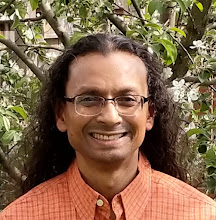In this excerpt Anastasia explains that everything she has taught so far (see all previous posts on book 1), should also be taught to your children.

"So, these parents arrive with this three-year-old child at their dacha plot and bring along his favorite toys. Artificial toys which displace the true priorities of the Universe. Oh, if only they had not done that! Just think, the child could have been occupied and entertained with something far more interesting than senseless and even harmful interaction with manufactured objects.
"First of all, you should ask him to help you, only ask him in all seriousness, without any pandering, especially since he will actually be able to offer you assistance. If you do any planting, for example, ask him to hold the seeds in preparation for sowing, or rake out the seedbeds, or have him put a seed into the hole you have prepared. And in the process talk to him about what you are doing, something like this:
"'We will be putting the little seed into the ground and covering it with earth. When the sun in the sky shines and warms the earth, the little seed will get warm and start to grow. It will want to see the sun, and a little shoot will poke its head out of the earth, just like this one.' At this point you can show him some little blade of grass. 'If the seed likes the sunshine, it will grow bigger and bigger and maybe turn into a tree, or something smaller, like a flower. And I want it to bring you tasty fruit, and you will eat it if you like it. The little shoot will prepare its fruit for you.'
"Whenever you arrive with your child at the dacha plot, or when he awakes first thing in the morning, have him look and see whether any new shoots have come up. If you should notice one, show your delight. Even when you are putting young plants rather than seeds into the ground, it is important to explain to your child what you are doing. If you are planting tomato seedlings, for example, let him hand you the stalks one by one. If a stalk should inadvertently break, take the broken stalk into your hands and say: 'I do not think this one will live or bear fruit, since it is broken, but let us try planting it anyway.' And plant at least one of the broken ones right along with the others.
"A few days later, when you visit the seedbed again with your child and the stalks have firmed up, point out the broken, withering stalk to your little one and remind him that it was broken during the planting, but do not use any preaching tone of voice in doing so. You need to talk with him as an equal. You should bear in mind the thought that he is superior to you in some respects - in the purity of his thought, for example. He is an angel! If you succeed in understanding that, you can then proceed intuitively, and your child will indeed become a person who will happify your days.
"Whenever you sleep under the stars, take your child with you, lay him down beside you, let him look at the stars, but under no circumstances tell him the names of the planets or how you perceive their origin and function, since this is something you do not really know yourself, and the theories stored in your brain will only lead the child astray from the truth. His sub-conscious knows the truth, and it will penetrate his consciousness all by itself. All you need to do is to tell him that you like looking at the shining stars, and ask your child which star he likes best of all.
"In general, it is very important to know how to ask your child questions. The next year you can offer your child his own seedbed, fix it up and give him the freedom to do whatever he likes with it. Do not ever compel him by force to do anything with it, and do not correct what he has done. You can simply ask him what he likes. You can offer help, but only after asking permission to work along with him."
As expected, Vladimir doesn't understand the benefit of all this, and Anastasia tries to explain that this is the path to spiritual enlightenment for your child (i.e. all of his brain cells will awaken). This too is meaningless to Vladimir, so she continues as follows.

"The contact he has established with his planets will allow him to constantly take in - and exchange - more and more information. The incoming messages will be received by his sub-conscious and transmitted to his consciousness in the form of many new thoughts and discoveries. Outwardly he will look like everyone else, but inwardly... This is the kind of Man you call a genius."



No comments:
Post a Comment